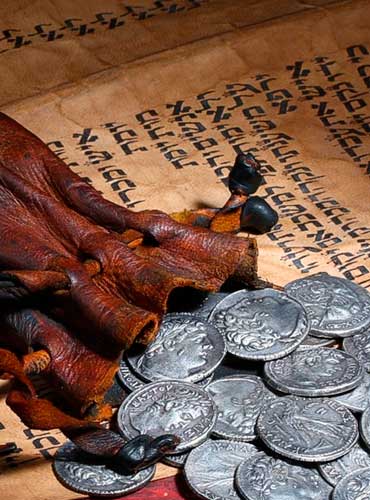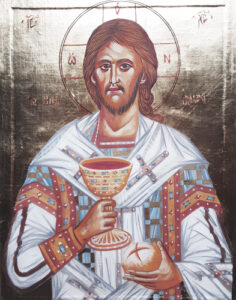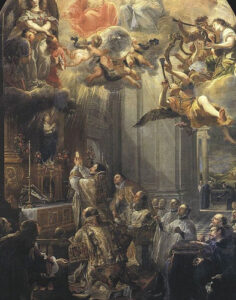Wednesday of Holy Week – Mt 26:14-25
Today’s daily Mass, this Wednesday of Holy Week (sometimes called Spy Wednesday because of the Gospel we just heard) is the last one before we enter into the Easter Triduum, and today’s Gospel gives us some excellent opportunities to meditate on Christ’s obedience, an obedience that will be clearly shown in the coming days.
We see Christ’s obedience as He tells the Apostles: “The Son of Man indeed goes, as it is written of him.” Many centuries before Christ spoke those words, the prophet Isaiah foretold His obedience, as we heard in the first reading: “Morning after morning he opens my ear that I may hear; And I have not rebelled, have not turned back.” This obedience entailed suffering: “I gave my back to those who beat me, my cheeks to those who plucked my beard; My face I did not shield from buffets and spitting.” Christ goes in accord with the Father’s will, a will revealed from the time sin first entered the world, then throughout the length of the Old Testament, and then finally and definitively fulfilled in Christ’s passion, death, and resurrection. Even the price paid to Judas was foretold through the prophet Zechariah. As Zechariah told the merchants “‘If it seems good to you, give me my wages; but if not, withhold them.’ And they counted out my wages, thirty pieces of silver. Then the LORD said to me, Throw it in the treasury—the handsome price at which they valued me. So I took the thirty pieces of silver and threw them into the treasury in the house of the LORD” (Zec 11:12-13). Everything is perfectly planned and measured in the designs of Divine Providence.
There are some lessons for us: we can ask ourselves about the way we see things, about the value we give to our sufferings, our trials, and God’s will in our lives, and particularly those things that come to us through obedience. Do we try to see these things with the eyes of faith, or merely with the human way of seeing things? There’s something very mysterious about how Christ tells His disciples to get everything ready for the Passover. He tells them to “go into the city to a certain man.” The Greek word for “a certain man,” δεῖνα (deina), only appears here in the entire New Testament, and it means, “So-and-so,” and was used when a name was forgotten or was simply not important.[1] It’s sort of a generic placeholder name. In a sense, we could put our own names there: at each and every Mass, and, indeed, at every moment of every day, Christ tells us, “My appointed time draws near; in your house, [the house of your soul], I shall celebrate the Passover.” Do we prepare for Him to come, not only at Mass, but also as He comes to visit us in the daily crosses that come our way, those things that make us pass over from the human way of seeing things to God’s way of considering them?
Today, let us ask, through the intercession of Mary, Refuge of Sinners and Our Lady of Sorrows, for the grace “of sorrow, regret, and confusion, because the Lord is going to His Passion for my sins.”
[1] Strong’s New Testament Greek: 1170: δεῖνα, ὁ, ἡ; genitive δεινός; dative δεινι; accusative τόν, τήν, τό δεῖνα (cf. Matthiae, § 151), such a one, a certain one, i. e. one whose name I cannot call on the instant, or whose name it is of no importance to mention; once in the Scriptures, viz. Matthew 26:18. (Aristophanes, Demosthenes, others.)







